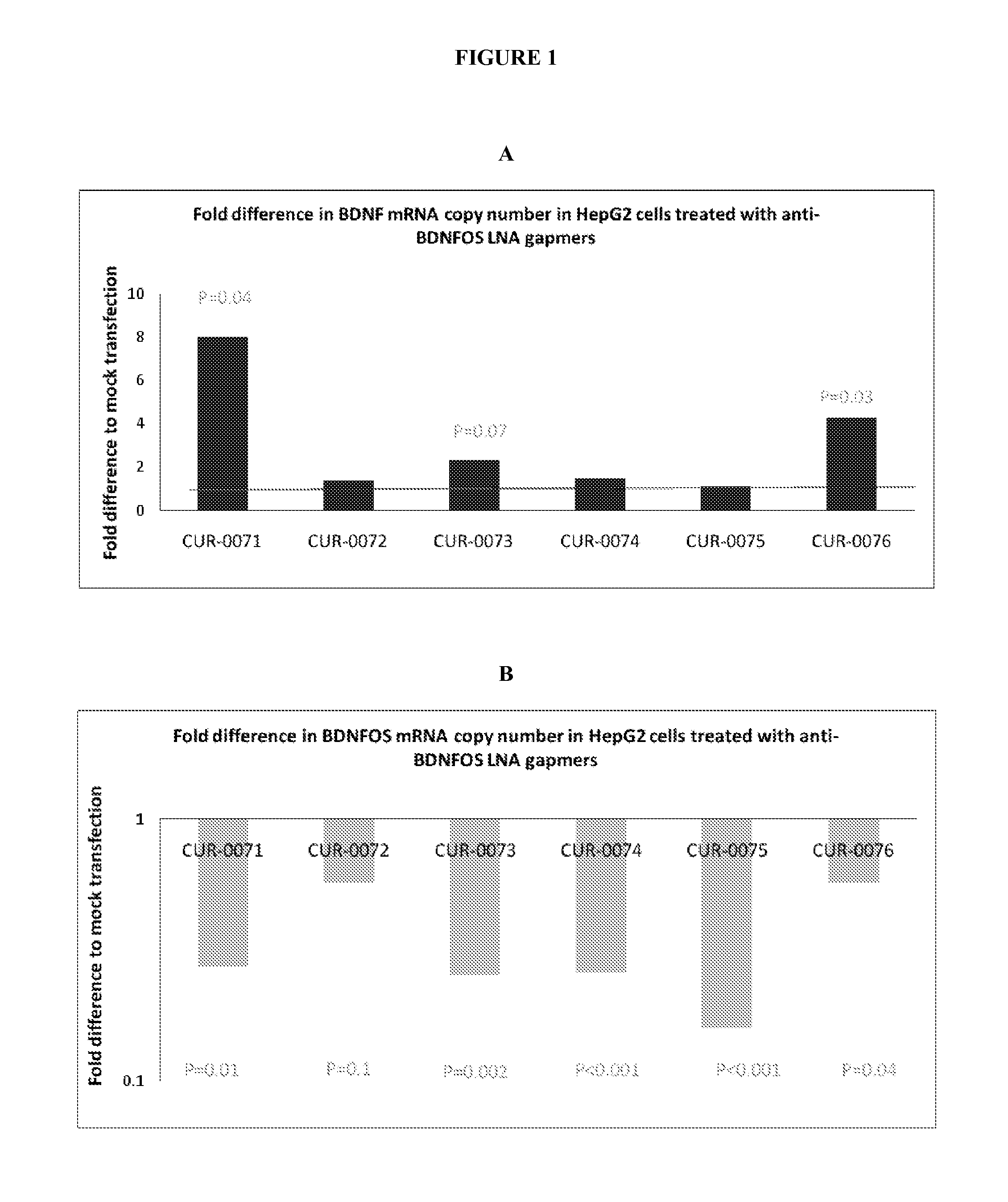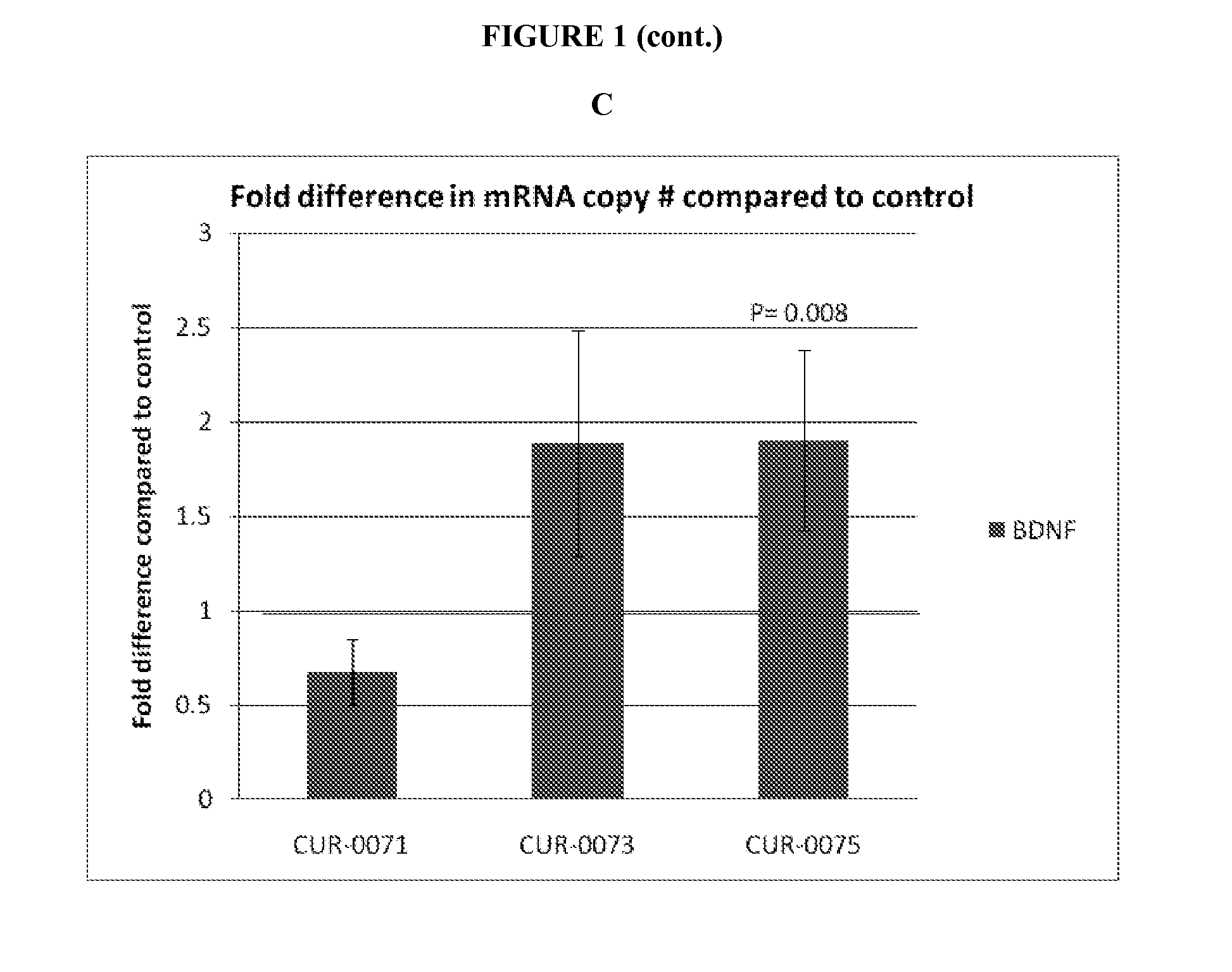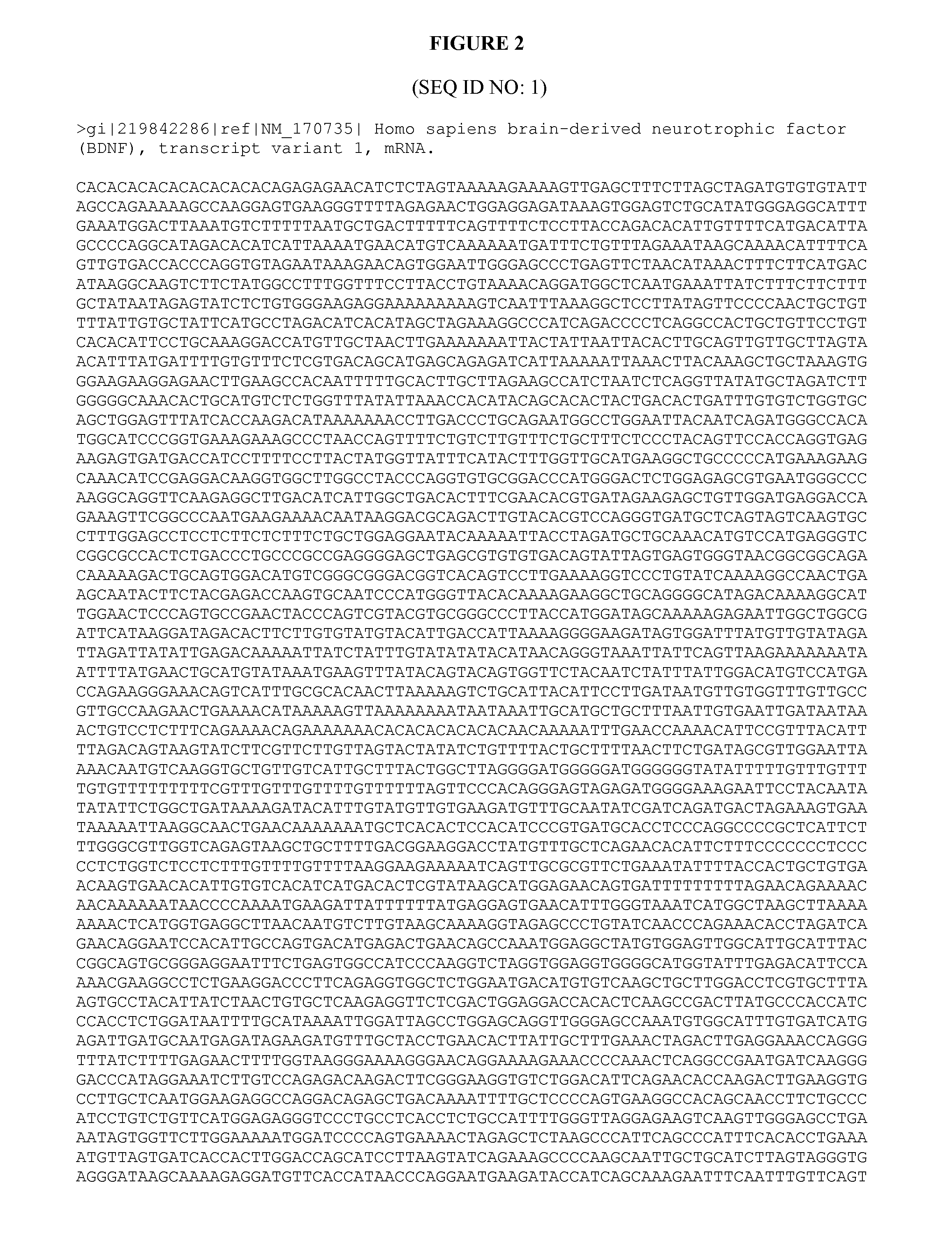Treatment of brain derived neurotrophic factor (BDNF) related diseases by inhibition of natural antisense transcript to bdnf
- Summary
- Abstract
- Description
- Claims
- Application Information
AI Technical Summary
Benefits of technology
Problems solved by technology
Method used
Image
Examples
example 1
Design of Antisense Oligonucleotides Specific for a Nucleic Acid Molecule Antisense to a Brain Derived Neurotrophic Factor (BDNF) Polynucleotide and / or a Sense Strand of Brain Derived Neurotrophic Factor (BDNF) Polynucleotide
[0219]As indicated above the term “oligonucleotide specific for” or “oligonucleotide targets” refers to an oligonucleotide having a sequence (i) capable of forming a stable complex with a portion of the targeted gene, or (ii) capable of forming a stable duplex with a portion of an mRNA transcript of the targeted gene.
[0220]Selection of appropriate oligonucleotides is facilitated by using computer programs that automatically align nucleic acid sequences and indicate regions of identity or homology. Such programs are used to compare nucleic acid sequences obtained, for example, by searching databases such as GenBank or by sequencing PCR products. Comparison of nucleic acid sequences from a range of species allows the selection of nucleic acid sequences that displa...
example 2
Modulation of BDNF Polynucleotides
[0228]Treatment of HepG2 Cells with Antisense Oligonucleotides:
[0229]HepG2 cells from ATCC (cat #HB-8065) were grown in growth media (MEM / EBSS (Hyclone cat #SH30024, or Mediatech cat #MT-10-0,0-CV)+10% FBS (Mediatech cat #MT35-0,1-CV)+penicillin / streptomycin (Mediatech cat #MT30-002-CI)) at 37° C. and 5% CO2. One day before the experiment the cells were replated at the density of 1.5×105 / ml into 6 well plates and incubated at 37° C. and 5% CO2. On the day of the experiment the media in the 6 well plates was changed to fresh growth media. All antisense oligonucleotides were diluted to the concentration of 20 μM. Two μl of this solution was incubated with 400 μl of Opti-MEM media (Gibco cat #31985-070) and 4 μl of Lipofectamine 2000 (Invitrogen cat #11668019) at room temperature for 20 min and applied to each well of the 6 well plates with HepG2 cells. A Similar mixture including 2 μl of water instead of the oligonucleotide solution was used for the m...
example 3
Antisense Modulation of BDNF Polynucleotide and Protein Product and Effect on Memory and Learning in Amyloid-Transgenic Mice
[0237]Antisense oligonucleotides specific for BDNF-AS (e.g., oligonucleotides identified by SEQ ID NOS 3-8) are administered to J20 mice, which express the human amyloid precursor protein (APP) transgene bearing both the Swedish and Indiana APP mutations. As described by, e.g., Nagahara, et al., 2009, “Neuroprotective effects of brain-derived neurotrophic factor in rodent and primate models of Alzheimer's disease,” Nature Medicine 15(3): 331-337, incorporated herein by reference, these mice show cortical plaques and progressive cell loss in the entorhinal cortex beginning at age 2-3 months, and cognitive decline by 6-7 months. Pre-treatment blood samples are collected several days before dosing by collecting 4-7 drops from the tail vein. Each antisense oligonucleotide is dissolved in PBS and administered into a mouse by injection into the entorhinal cortex or t...
PUM
| Property | Measurement | Unit |
|---|---|---|
| Fraction | aaaaa | aaaaa |
| Fraction | aaaaa | aaaaa |
| Fraction | aaaaa | aaaaa |
Abstract
Description
Claims
Application Information
 Login to View More
Login to View More - R&D
- Intellectual Property
- Life Sciences
- Materials
- Tech Scout
- Unparalleled Data Quality
- Higher Quality Content
- 60% Fewer Hallucinations
Browse by: Latest US Patents, China's latest patents, Technical Efficacy Thesaurus, Application Domain, Technology Topic, Popular Technical Reports.
© 2025 PatSnap. All rights reserved.Legal|Privacy policy|Modern Slavery Act Transparency Statement|Sitemap|About US| Contact US: help@patsnap.com



